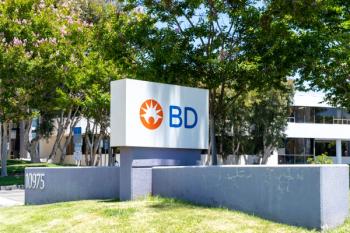
- The Column-08-08-2016
- Volume 12
- Issue 14
Sciex Collaborate on Major Proteomic Mapping Project
Sciex has announced that it will work with the Francis Crick Institute and the University of Cambridge to build a metabolism-centric proteomic map.
Sciex (Massachusetts, USA) has announced that it will work with the Francis Crick Institute (London, UK) and the University of Cambridge (Cambridge, UK) to build a metabolism-centric proteomic map.
The comprehensive map will focus on enzymes involved in the control of metabolism and will be developed using Sciex micro-flow chromatography and data-independent Swath acquisition.
David Roblin, Chief Operating Officer and Director of Scientific Translation at the Francis Crick Institute, expressed delight at the collaboration and highlighted the support received from the Biotechnology and Biological Sciences Research Council (BBSRC) UK. “The grant from the BBSRC demonstrates that the multidisciplinary nature of the Crick is creating new scientific ideas that are leading to translation and commercial opportunities. This accelerated translation of our science for health and wealth benefits is a key feature of our strategy,” said Roblin.
The project aims to address a growing demand from the biotechnology industry for fast and robust large-scale proteome analysis to further our understanding of the function and activity of the metabolic network, providing insights into its effect on ageing and age-associated diseases.
“Gaining and sharing knowledge around the ageing process has great potential for unlocking answers to the questions of precision medicine,” said Chris Radloff, Global Vice President & General Manager of the LC–MS Business at Sciex.
The emergence of precision medicine for disease treatment and prevention has highlighted the need for industrialized proteomics, which allows faster analysis of larger sample sets than the current, widely-used omic methods.
The study will be led by Dr. Markus Ralser of the Francis Crick Institute and Professor Kathryn Lilley from the University of Cambridge.
For more information please visit
Articles in this issue
over 9 years ago
GC–MS Uncovers Plastic Migration into Foodover 9 years ago
Polymer Char ICPC User Trainingover 9 years ago
Recent Advances in Microfluidic Liquid Chromatographyover 9 years ago
A Molecular Beacon of Hopeover 9 years ago
Equine Drug Testing with LC–MS/MSover 9 years ago
The 31st International Symposium on Chromatography (ISC 2016)over 9 years ago
Vol 12 No 14 The Column August 08, 2016 Europe and Asia PDFover 9 years ago
The Evolving Role of SFC in Forensic Analysisover 9 years ago
Tips & Tricks GPC/SEC–Light Scattering: Garbage In, Garbage OutNewsletter
Join the global community of analytical scientists who trust LCGC for insights on the latest techniques, trends, and expert solutions in chromatography.




